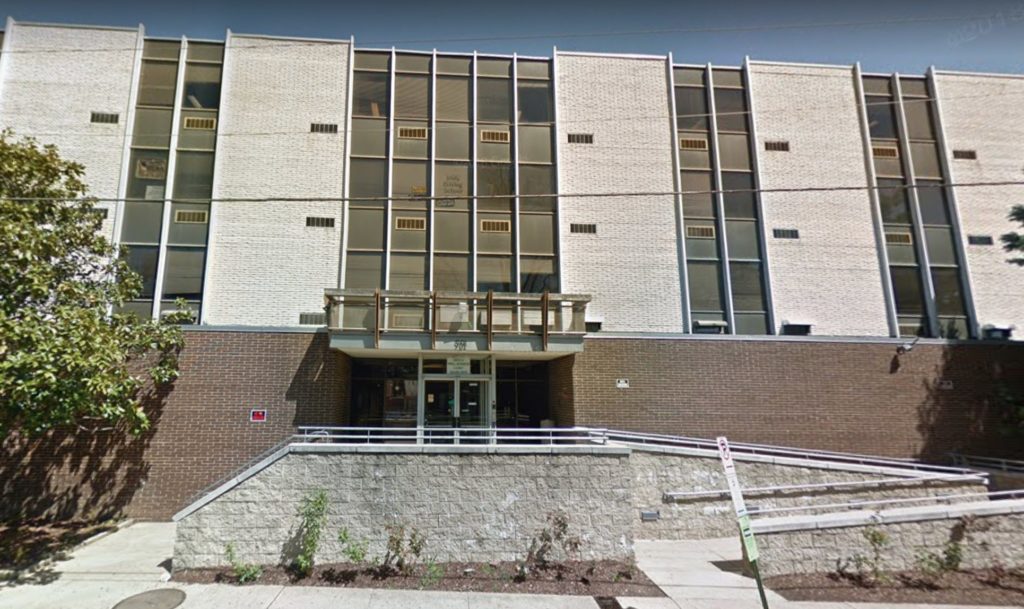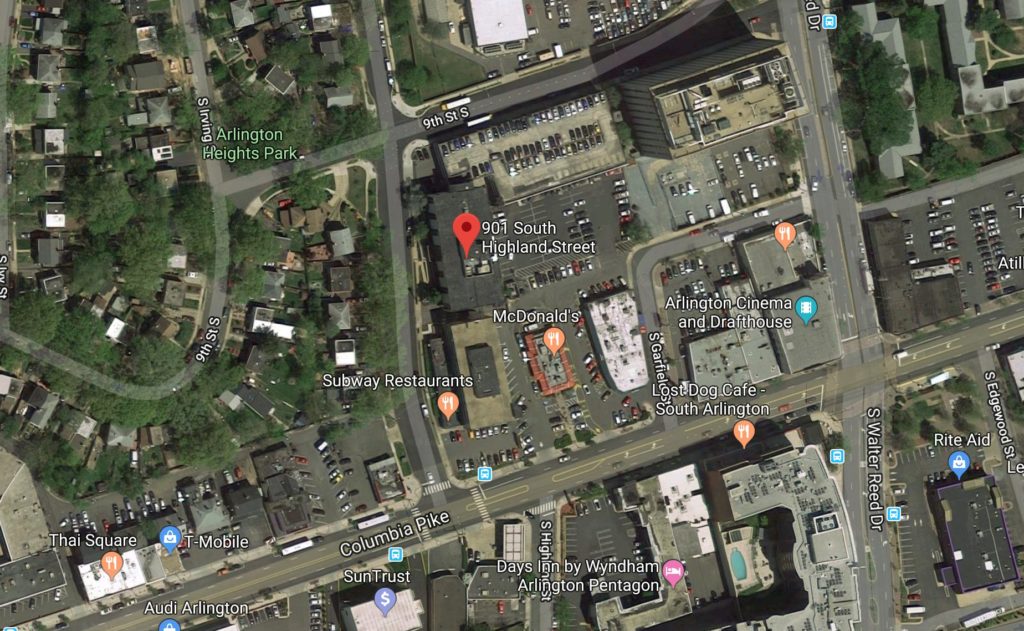The Arlington County Board made the unusual move of extending weekend operating hours to 2 a.m. for one Columbia Pike establishment — but it’s not for a bar.
The Board granted permission for the Ethiopian Community Development Council (ECDC) to hold community events until 2 a.m. on weekend nights. In exchange, staff from the office building at 901 S. Highland Street will be responsible for keeping the noise down, and ensuring there are two security personnel present in labeled vests.
“It’s outcomes we care about,” said Board Chair Christian Dorsey after a lengthy back-and-forth over the number of security personnel needed to accommodate the event space. The Board voted unanimously to grant ECDC a use permit after Board member Katie Cristol proposed an amendment to keep the current requirement of 2 staff members.
“It’s pretty unusual extending events to 2 a.m., particularly in a space that abuts a more residential area,” said Cristol.
“The reason I’m comfortable taking this unusual step is all of the work all of you have done,” she said, citing sound-proofing and traffic management measures ECDC has taken over the past several years.
“I think it is going to accommodate the needs of our community,” ECDC President and CEO Dr. Tsehaye Teferra told ARLnow today (Tuesday). “In times of death or joy people need a space to gather and we are meeting that need. That’s how we started it.”
The development council has provided language and job training to Ethiopians who have newly immigrated to the United States since 1983 and advocates for the D.C. area’s growing Ethiopian community. ECDC’s office along Columbia Pike also serves as an ad-hoc community center by letting members rent out space for events, from celebrations to memorial services.
County planner Matthew Pfeiffer presented recommendations to the Board that ECDC be granted longer opening hours — as long as they provide three staffers to oversee operations to direct “potential impacts away from N. Highland Street.” Under the county’s proposal, ECDC would be required to provide two staffers to monitor the events and provide security, and the third would be dedicated to managing noise and traffic on N. Highland Street.
Teferra protested the increased staffing requirement, saying it should be up to ECDC to set appropriate staffing levels in order to keep cost of renting the spaces low.
“If we are required to have three staff at all times, financially it is not sustainable,” he said.
The newly-extended hours would only apply to one of ECDC’s buildings: the “front” building on the corner of Columbia Pike and S. Highland Street, which has a 3,762 square-foot ballroom. ECDC’s rear office building also has a 1,437 square-foot space that will stick with the old midnight closing hours for weekend events, Teferra says.
ECDC requested later hours for the ballroom to help serve a community that includes people working late shifts in restaurants and hotels that conflict with the current closing times.
Teferra added that although many of the community members work in hotels, it’s hard for them to afford the activity space in hotels, and not all locations allow them to bring in their own food. Other places, like apartment party rooms, sometimes require guest lists which are difficult to manage for drop-in events like wakes.
“In many cases, most people work until 8 or 9 p.m. and events don’t start right away,” he said. “So in the past we had the limit was until 11:30. By the time the party started then it’s over.”
Teferra told the Board that ECDC usually hosts at least one community event per month, including memorial services, christenings, weddings, graduations, religious ceremonies and birthday parties.
The council also holds other events, like job training events.
He told ARLnow that not every event is a nighttime one — most christenings happen in the morning, for instance — and that ECDC plans to end most weekend nighttime meetings before 1:30 a.m.
Pfeiffer noted that neighbors “fairly clearly” did not support the request for long hours when the county engaged the Arlington Heights neighborhood. Teferra disagreed, saying the ECDC gathered over 100 signatures of support from neighbors.
One ECDC staff member acknowledged that noise complaints were an issue in the past, but have decreased since they sound-proofed the event spaces and directed foot traffic away from S. Highland Street.
When asked by Board member Libby Garvey, Pfeiffer confirmed there have been fewer neighborhood complaints since 2017.
A dozen people who have used the community rooms in the past for family events or organizational meetings took to the podium on Saturday and urged the Board to support extending the hours.
“It was my first entry point when I arrived to this country in 2005,” said one man, who added that he runs a development organization whose members also meet in the space.
Several people noted longer hours also give organizers the ability to have more time to clean up after events.
“We’re very polite, good, amazing people,” said one woman who has used the meeting spaces for the last 24 years. “We are trying to help. We are also teaching the young people to give back, whether here or back home.”
As part of the use permit application, the county requires ECDC to post events on its front door, meet regularly with the community, and stripe a pathway for people to walk between the ballroom in the 901 S. Highland building and the parking garage behind it to reduce noise on S. Highland Street.
As approved, the permit requires the County Board to review the use permit again next year — despite a recommendation from the Arlington Heights Civic Association to require a review after six months.



